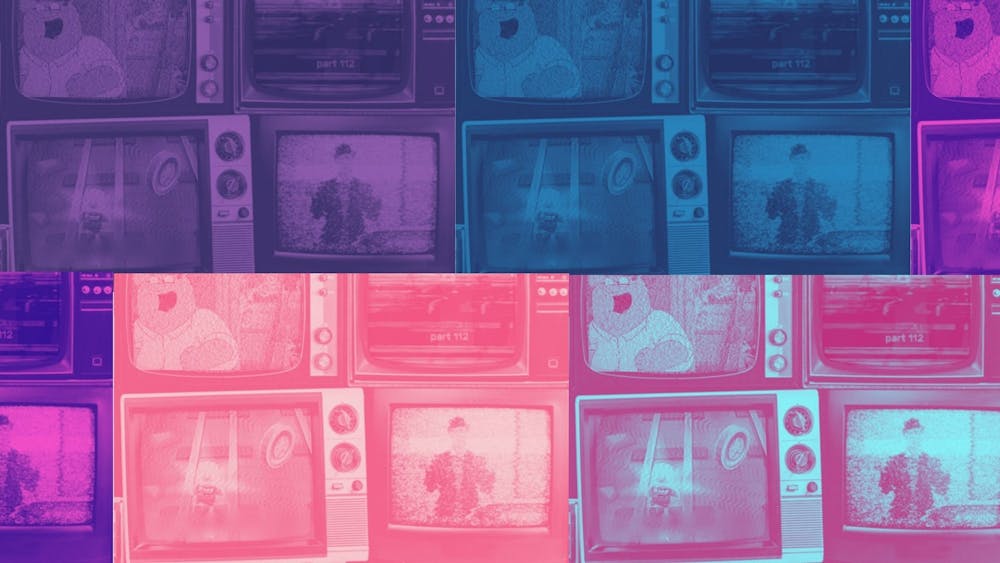I have watched all two seasons of Pen15, but I don’t even know what platform it is on. My TikTok for–you page is filled with clips of any semi–popular TV show in the last 15 years, divided into short parts, split screened with Subway Surfers or slime DIYs. These videos even prompted me to watch all seven seasons of Malcolm in the Middle, a show I had never even heard of before this year.
Now this is not an uncommon phenomenon, binging TV shows on TikTok is a quintessential experience—at least I hope so. However, if you are not as chronically online as I am, let me explain it to you: you're scrolling through your average videos—Taylor Swift fan edits, cooking instructions, Philly thrift store recommendations. Suddenly, you see it: Suits (titled “everyday lives of lawyers”). And you can’t look away, until suddenly you’re one hour in, scrolling through the page, commenting “next part pls,” and oftentimes, searching what platform you can watch it on.
Despite being a self–proclaimed film bro, two years ago when I first downloaded TikTok, I stopped watching TV. My endless binging of shows such as Modern Family or Breaking Bad came to an abrupt halt. My attention span was slowly corroded as I began to find the short–form content much more appealing. However, within the last year, the pirated, split–screened clips have started to fill my for you page, and I cannot stop watching it.
The pirated content on the platform is directly suited for the minds of those of us whose attention spans have been ruined. The small, five–minute clips grab our attention more than a trailer, as they take the most eventful parts of narratives and throw us right into the heart of a TV show.
The phenomena is a convergence of two well–documented occurrences: the effectiveness of movie marketing on TikTok and how it is shortening our attention spans.
The platform is an incredibly effective marketing tool. It enables audiences to not only interact with content, but to transform it—stitching, duetting, and commenting—creating a streamlined way to engage with content. For marketing films, this is especially powerful, because anyone is able to give their opinion on films. In tandem with the incredibly strong algorithm, which allows for audiences to interact with the exact content they want to see, TikTok is able to give extremely personalized recommendations. According to a TikTok company analysis, in 2021 52% of tiktokers have discovered a new actor, movie, or show on TikTok, and 69% have watched co–created content related to TV or movies. With TikTok, we no longer need to choose movies; the algorithm chooses for us.
Additionally, TikTok is corrupting our attention spans: “Nearly 50% of users surveyed by TikTok said that videos longer than a minute long were ‘stressful.’” Within 20 years, the average time someone focused on a screen without getting distracted has decreased from two and a half minutes in 2004 to 45 seconds in 2023. Social media, and more specifically TikTok, is permanently altering our brains.
Personally I have noticed that since downloading the app, I cannot watch a movie without playing Subway Surfers or doing work. The phenomenon of the pirated, split–screened content is also directly responsible for that: it is not enough that the clips are short; they must also be hyper–stimulating. It is no wonder that I stopped watching TV outright after downloading the app.
I mourn my old way of watching TV, when I could sit down and watch a whole show without having to skip every ten seconds before getting bored. However, I also wonder if this is the future of streaming.
There has been a recent push from production companies to create short–form content. In November 2023, Yellow Dot Studios released Cobell Energy, a workplace comedy that consisted of sixteen episodes around two minutes long. It was released exclusively on TikTok. In April 2020, the mobile–first streaming platform Quibi was launched—and seven months later it had fully shut down. Quibi had the goal of being a subscription–based service that displayed short–form movies and TV in a manner similar to that of TikTok. Despite a long list of celebrities (such as Tina Fey and Steven Spielberg) who worked on Quibi content, it never gained any popularity.
Attempts to create intentionally short–form movies and TV shows have not been powerful enough to get you to cancel your Netflix subscription. So, maybe the appeal to TikTok TV is that you can talk about shows with friends without intentionally sitting down to watch them. Or maybe its the efficiency. TikTok is a one–stop: you can shop, you can get your news, your dance routines, and now your TV. And all of it is hyper–stimulating and only 6 seconds long! So for now, I will continue to get my TV on the platform.
But then again, maybe I should just delete TikTok, repair my attention span, and return to watching TV normally.







